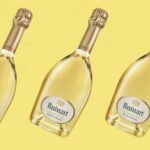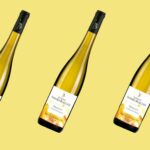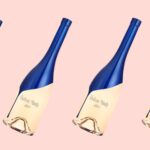Wine aging is both a science and an art. Understanding the process is the key to preserving and enjoying rare bottles. Here's a guide for collectors who want to master wine aging and get the most out of their cellars.
What is wine ageing?
Wine aging transforms its aromas, texture and taste over time. This natural process is the result of chemical reactions between its compounds. Tannins, acids and sugars play an essential role in this evolution.
Which wines can be aged?
Not all wines are designed for aging. Tannic red wines, such as Bordeaux or Barolo, gain in complexity with age. Some white wines, like the great Burgundies or Rieslings, reach their peak after several years.
The role of tannins and acidity
Tannins act as a natural preservative, enabling red wines to age well. Acidity keeps white wines fresh over the years.
The importance of storage conditions
Storage conditions are essential for optimal aging. Poor storage conditions can ruin even the finest wines.
Temperature and humidity
Wine needs a stable temperature, ideally between 12°C and 14°C. Sudden variations damage its aromas. Humidity should be between 60% and 80% to preserve corks and preventoxidation.
Bottle position
Store bottles horizontally to keep corks moist. This prevents air from penetrating the wine and impairing its quality.
Determining a wine's apogee
A wine's apogee is the moment when it expresses its full potential. Identifying this moment is crucial for collectors.
Factors influencing apogee
Origin, grape variety and winemaking method determine how long it takes to reach its peak. Red Bordeaux wines can take 10 to 20 years, while some Châteauneuf-du-Pape need less.
How do you know when a wine is ready to drink?
A ready-to-drink wine reveals balanced aromas and a harmonious structure. Opening a bottle at different stages allows you to appreciate its evolution.
Avoiding common wine-aging mistakes
Even experienced collectors sometimes make mistakes that compromise their bottles.
Aging unsuitable wines
Not all wines improve with age. Drink light, fruity wines when they're young.
Forgetting to keep track of bottles
Don't let your bottles age indefinitely. Note the date of purchase and consult guides for each appellation.
The science behind wine ageing
The changes in wine over the years are the result of complex reactions. These transformations create more subtle aromas and softer textures.
Tertiary aromas
Aging develops tertiary aromas, such as leather, undergrowth or dried fruit. These notes replace the primary aromas of fresh fruit.
The evolution of tannins
Over time, the tannins soften, making the wine more pleasant on the palate. Young, tannic wines become more balanced.
Investing in the right wine cellar
A quality wine cellar guarantees optimal aging. Here's what you need to consider before investing.
Traditional cellars vs. electric cellars
Traditional cellars offer a natural solution, but require regular maintenance. Electric cellars precisely control temperature and humidity, making them ideal for modern collectors.
Size and capacity
Adapt the size of your cellar to your collection. Allow sufficient space for future acquisitions.
The benefits of aging for collectors
Wine aging offers both sensory and financial benefits.
A unique taste experience
Aged wines offer flavors and textures that young wines cannot match. Tasting a wine at its peak is an unforgettable experience.
Increased value for rare bottles
Quality aged wines often gain in market value. Careful management of your collection can pay dividends.
When should you open your bottles?
Choosing the right moment to open an aged bottle is crucial. Follow the producers' advice or taste regularly to assess the evolution.
If you enjoyed this article, you might also like to read "Discovering the Alentejo appellation: a unique terroir in Portugal"!





